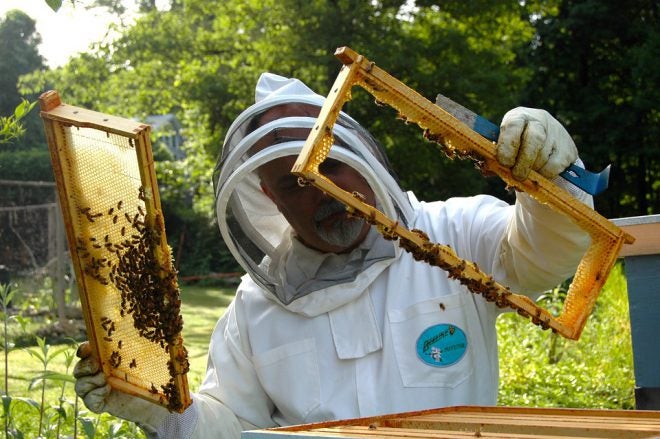The Bees are Alright.
Russ Chastain 09.23.16

By now, we have all heard the dire warnings and seen the memes about honeybees dying off. They’re all going to kick the (honey) bucket and then we remaining earthlings will die a miserable death without the bees’ pollination services.
Except, that’s not true.
I repeat: There is no looming beepocalypse.
An interesting article by Shawn Regan explains this in some detail.
Although commercial beekeepers did begin to see increased winter deaths in 2006–a phenomenon later called “colony collapse disorder”–beekeepers have adapted over the years. But you wouldn’t know that if you went by the mainstream “scare-tactic” news media and the actions of the Federal government.
[In 2014], riding the buzz over dying bees, the Obama administration announced the creation of a pollinator-health task force to develop a ‘federal strategy’ to promote honeybees and other pollinators. Last month the task force unveiled its long-awaited plan, the National Strategy to Promote the Health of Honey Bees and Other Pollinators. The plan aims to reduce honeybee-colony losses to ‘sustainable’ levels and create 7 million acres of pollinator-friendly habitat. It also calls for more than $82 million in federal funding to address pollinator health.
That’s 82 million bucks down the tubes because there is no bee crisis! There are more bee colonies and higher honey production now than when the so-called “crisis” began.
[T]here are more honeybee colonies in the United States today than there were when colony collapse disorder began in 2006. In fact, according to data released in March by the Department of Agriculture, U.S. honeybee-colony numbers are now at a 20-year high. And those colonies are producing plenty of honey: U.S. honey production is also at a 10-year high.
Beekeepers have learned to adapt. Those efforts don’t cost that much, and they’re clearly working. Pollination continues to happen. In some cases, the fees paid by farmers to beekeepers for pollination are higher than they used to be, which offsets beekeepers’ increased hive maintenance costs. The market has adjusted just fine.
But once government wheels start rolling, it’s tough to stop them from moving ahead whether there’s a need or not.
The White House downplays these extensive markets for pollination services. The task force makes no mention of the remarkable resilience of beekeepers. Instead, we’re told the government will address the crisis with an ‘all hands on deck’ approach by planting pollinator-friendly landscaping, expanding public education and outreach, and supporting more research on bee disease and potential environmental stressors.
Sigh.
Yes, there was a problem, but adjustments have corrected that problem and have apparently reversed any downturn in the number of honeybees.
Wouldn’t it be nice if the federal government could take note of that and drop their wasteful task force approach to a problem that no longer exists?
Or, as the article‘s author says:
With U.S. honeybee colonies now at a 20-year high, you have to wonder: is our national pollination strategy a solution in search of a crisis?
I’d have to say so.